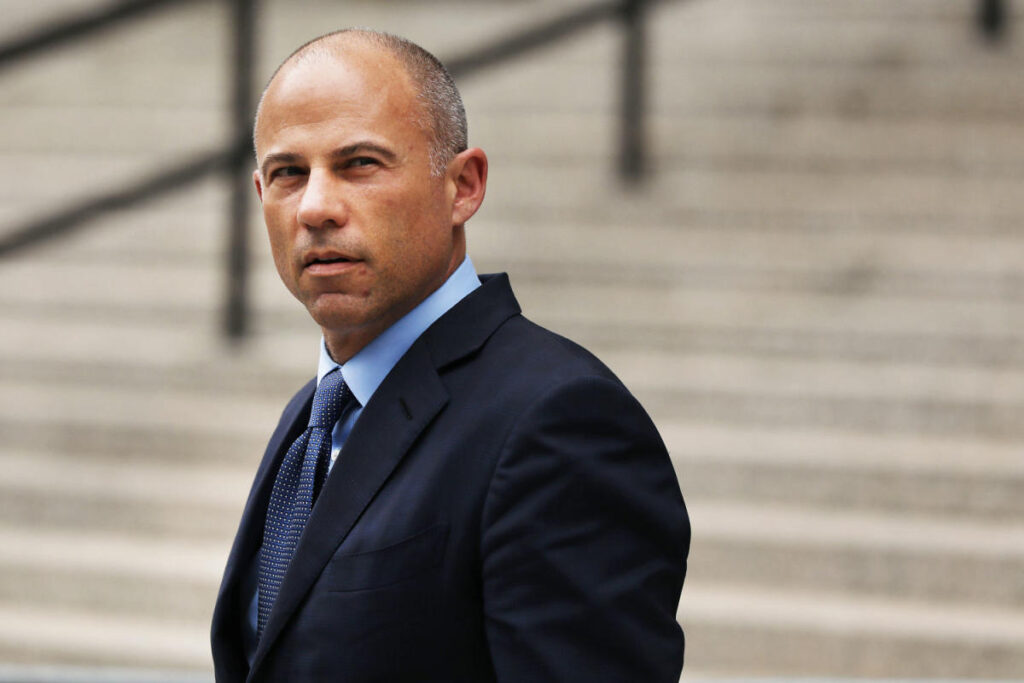On Tuesday, the Supreme Court declined to review Michael Avenatti’s convictions linked to his former client, Stephanie Clifford, also known as Stormy Daniels. This rejection adds to Avenatti’s ongoing legal challenges, including a previous failed appeal concerning separate convictions for attempting to extort Nike. Both cases saw Justice Brett Kavanaugh recused, a decision that remains unexplained but may relate to Avenatti’s representation of an individual with controversial claims against Kavanaugh during the justice’s 2018 confirmation hearings. Avenatti’s efforts to seek Supreme Court intervention highlight the significant legal battles he continues to face as a high-profile attorney associated with Trump-related controversies.
Avenatti’s most recent appeal was rejected following an upholding of his fraud and identity theft convictions by the 2nd U.S. Circuit Court of Appeals. The appellate court described the evidence against Avenatti as “overwhelming,” specifically citing his misappropriation of funds from Daniels’ book advance. The case underlined serious ethical and legal breaches on Avenatti’s part, suggesting a disregard for his client’s financial rights. The court’s reaffirmation of these convictions appears to cement Avenatti’s challenges in mounting a successful legal defense, further complicating his attempts to regain standing in the legal community.
In the legal response to Avenatti’s petition, the Justice Department notably did not submit any feedback, and the Supreme Court justices did not solicit a counter-response. This lack of engagement from the Justice Department likely indicates that Avenatti’s petition faced minimal chance of success and foreshadowed its inevitable denial. The swift rejection from the Supreme Court reflects a broader trend in Avenatti’s legal efforts, where repeated attempts to appeal adverse rulings have consistently met with failure.
Currently, Avenatti, now 53, remains incarcerated in a low-security federal facility located in San Pedro, California. According to the Federal Bureau of Prisons, he is scheduled for release on July 31, 2035, barring any changes to his legal status or sentence. This lengthy incarceration not only constrains Avenatti’s personal freedom but also severely limits his professional opportunities, effectively sidelining a once-prominent legal career that catapulted him into the national spotlight.
The repercussions of Avenatti’s convictions resonate beyond his immediate case, linking him to broader narratives involving high-profile political figures such as Donald Trump. Notably, Avenatti’s legal tribulations and connection to Daniels, who testified against Trump in a criminal case, underscore the intersection of celebrity culture, politics, and the law. His representation of Daniels placed him at the center of a media storm, which has since transformed into personal legal struggles that reflect the complexities of celebrity and public life.
The developments surrounding Avenatti serve as a cautionary tale regarding the ethical dimensions of legal representation, particularly in high-stakes cases involving prominent individuals. As the legal landscape continues to evolve, especially with ongoing scrutiny of Donald Trump’s legal challenges, Avenatti’s case emphasizes the intricate and often perilous intersections of law, media, and public perception. The rejection of Avenatti’s appeal, alongside the backdrop of his previous convictions, signifies a definitive chapter in a saga marked by legal missteps and personal downfall, leaving an indelible mark on his legacy.

